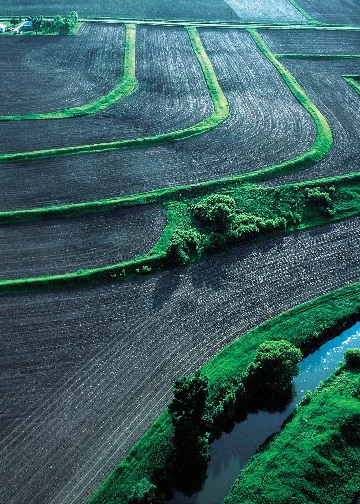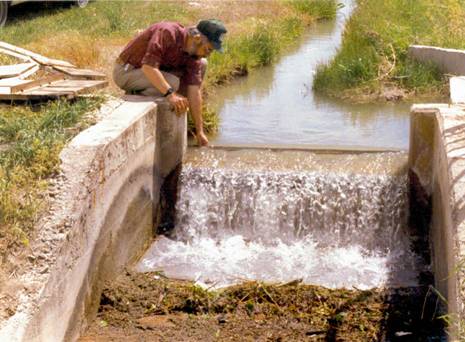Competency Area 5: Soil conservation AEM
PO 47. Understand the basic approaches to structural soil conservation practices.
- Filter strips
- Grassed waterways
- Diversions<
- Ponds
- Terraces
- Drop structures
Terraces
Terraces are broad cross-slope channels similar to diversions, used to control erosion on cropland and built so that crops can be grown on the terrace. Storage terraces store water until it can be absorbed by the soil or released to stable outlet channels or through underground outlets. Storage terraces are usually designed to drain completely in 48 hours to avoid waterlogging within the terrace. Gradient terraces are gently sloping channels constructed almost perpendicular to the natural field waterway. Various different types (constructed shapes) of terraces include bench, broad-base, channel-slope to reduce field slope lengths, and collect runoff water and carry it to a stable outlet like a type, conservation bench, graded, level, Mangum, narrow-base, parallel, nonparallel, ridge-type, ridgeless-channel, and steep-backslope terrace.

Terraces as part of soil conservation
Photo courtesy of NRCS
http://photogallery.nrcs.usda.gov
Drop structures
Drop structures are hydraulic structures for safely transferring water in a channel to a lower level channel without causing erosion. They can be vertical or slanting and are typically built with a vertical riser conduit (drop-inlet spillway) or an apron (drop spillway) with a plunge pool at the base. The plunge pool acts to dissipate flow and reduce erosion of the stream bottom.

Drop structure
image source:
http://www.ars.usda.gov/SP2UserFiles/Place/53680000/presentations/trashscreen/squarescreen1.jpg
Quick Links
- Competency Area 1: Basic soil properties
- Competency Area 2: Soil hydrology AEM
- Competency Area 3: Drainage and irrigation AEM
- Competency Area 4: Soil health and compaction
- Competency Area 5: Soil conservation AEM
- Competency Area 6: Watershed hydrology AEM
- Competency Area 7: Non-point source pollution AEM
- Competency Area 8: Concentrated source pollution AEM
- Competency Area 9: Conservation planning AEM
